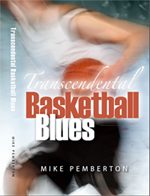Possessed by Stuff
10/21/2018
Published in News-Gazette
“Two sheds, a house, and a garage filled with stuff,” my friend said, staring glumly at the floor, then out a window. “The estate sale took all day. He willed all proceeds to the church, but by the end I was ready to give the leftovers away or haul them to the dump and write a check.”
Blue eyes brightening, she laughed. “Why do we collect so much stuff?”
I shrugged and thought of two shelves of boxes in our basement not touched since we moved in 21 years ago.
A few days later I read a story on the California wildfires where a fellow named Paul Lew and his two teenage sons skedaddled from their house. Lew told the boys to “throw everything they care about in the back of the car. I grabbed computers, cellphones, papers. …clothes, my guitars.”
I wondered what I might throw into “the back of the car.”
My older sister, Amy Jo, a ruthless anti-hoarder, recently shipped me a box with various knickknacks of our Grandmother Pemberton’s. Included was a quilt Gram sewed, along with another done with a group of quilters, their names embroidered on each square.
I ran my fingers over the quilts rough stitches and smooth fabric. Like conjuring a genie from a bottle, images of a slim, gray-haired Gram, sitting straight-backed, pressing a sharp, stainless steel needle through fabric stretched taut on a wood quilting frame, appeared in my mind. Gram’s eyes never strayed from the pattern as she kibitzed with me or spouted advice to her favorite characters on “General Hospital.”
Grandma’s quilts go in the back of the car.
But what’s the connection to so much other stuff?
From The Principles of Psychology, William James says of possessions: “In its widest possible sense, however, a man’s Self is the sum total of all that he CAN call his, not only his body and his psychic powers, but his clothes and his house.”
Okay, we identify with our things. To some degree we are our things. But do we need to keep so much and leave a mess to our heirs?
The second part of James’ quote lists other things a person identifies with like their spouse “and children, his ancestors and friends, his reputation and works, lands…and bank-account. All these things give him the same emotions. If they wax and prosper, he feels triumphant; if they dwindle and die away, he feels cast down – not necessarily in the same degree for each thing, but in much the same way for all.”
This sense of diminishment may be why we cling to stuff. We lose family and friends. It is beyond our control. And each time someone dies, we lose a bit of ourselves. Things we associate with loved ones assuage that pain.
In the Life of Pi, an adult Pi Patel, who, as a boy, survived a shipwreck in which his family perished, says: “I suppose in the end, the whole of life becomes an act of letting go, but what always hurts the most is not taking a moment to say goodbye.”
Perhaps some things left behind serve as a form of farewell. Yet a lot of junk remains.
Maybe we’re overwhelmed. Unable to decide what to toss, we abdicate all responsibility.
I joke with the kids that the house and all that’s in it will be their problem someday.
“Thanks a lot, Dad,” they murmur, exchanging mutinous glances.
I met a woman the other day who lives in a small town of 5,000 people. She owns three storage facilities, over a hundred individual units in all, many about 10 x 10 in size. Almost all are rented. People pay her $50 to $100 a month to store stuff. It’s a healthy income stream for her. She’s not the only one. The U.S. self-storage “industry” generates $38 billion a year in revenue with an estimated 44,000 facilities. Enabling hoarding is big business.
“What happens if they don’t pay?” I asked the woman.
“After 30 days, the contents are mine. I sell what I can and discard the rest.”
“You don’t keep anything?”
“My God, no,” she says. “Who wants someone else’s junk?”
I think of our kids, my friend and the estate sale.
Maybe it’s time to empty those shelves in the basement.


